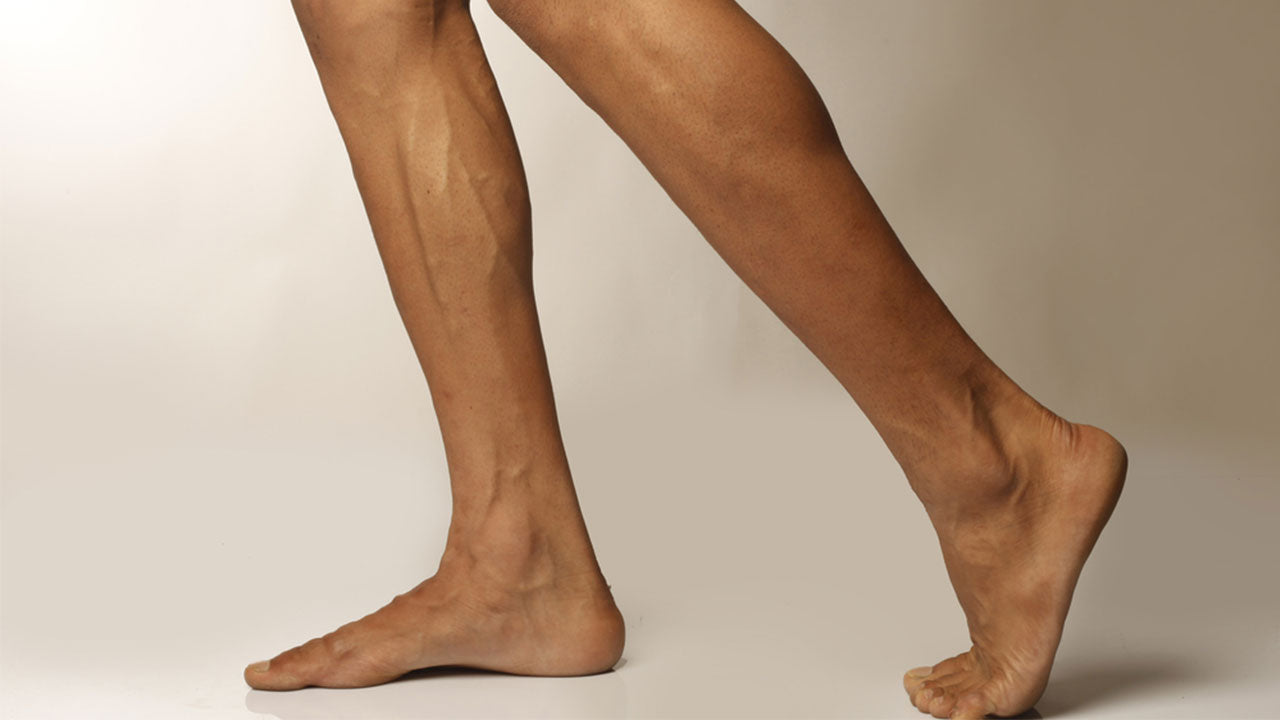Maintaining Muscle When You’re Sick or Injured: Why It Matters and How to Do It
 By: by Amino Science
By: by Amino Science

It is unfortunately true that, at some point in our lives, most of us will have to deal with a major health issue. This may be surgery, serious illness such as pneumonia, or chronic disease such as kidney disease. Muscle loss is accelerated under such conditions, which can have a direct impact on your recovery. In this article, I'll first explain the biological processes that contribute to accelerated muscle loss and why it's so vital to counteract those. Then I'll equip you with evidence-based good advice on maintaining muscle when you’re sick, a key piece of which is to focus on obtaining a steady supply of essential amino acids to help reverse muscle loss and accelerate your recovery.
The Importance of Maintaining Muscle When You're Sick or Injured
The consequences of muscle loss as a result of serious injury or illness can be severe and immediate. Muscle mass can be a direct contributor to survival during times of critical illness and can significantly contribute to the speed and extent of recovery. When we age, we lose muscle slowly and gradually. However, battling a serious illness or injury can result in rapid weight loss—a significant portion of which may come from the loss of muscle tissue rather than body fat. This deterioration of muscle mass occurs so quickly that consequences can be evident in a matter of days or weeks.
Understanding the Catabolic State
In technical terms, the biological mechanisms that result in rapid muscle loss can be referred to collectively as a catabolic state. This state itself can be seen as a subcomponent of the body's overall physiological response to intense stress. Regardless of the underlying cause of that stress (i.e., cancer, injury, surgery, etc.), the body's response features certain common aspects.
In a catabolic state, you not only lose an increased percentage of your muscle mass in a shorter period of time, but you also experience decreased appetite as well as metabolic changes, such as reduced sensitivity to the action of the hormone insulin, that intensify the associated adverse outcomes. The loss of appetite results in decreased nutritional intake at a time when demand for dietary nutrients, particularly protein, is increased.
Interestingly, regardless of the clinical condition that causes the stress response, changes in muscle protein metabolism are basically the same. Therefore, the body's response to stress and the effects of the catabolic state can be discussed generally without the need to specify what instigated them.
Muscle Protein Metabolism in a Catabolic State
The rapid loss of muscle protein that transpires during a catabolic state reflects an imbalance between the rates of muscle protein synthesis and muscle protein breakdown. This imbalance has less to do with changes to muscle synthesis (muscle growth) and instead stems from a large increase in the rate of muscle protein breakdown. You can see in the figure below how different illnesses affect a similar increase in muscle protein breakdown.

Certain physiological states, such as illness, cause the rate of muscle protein breakdown to accelerate. This, in turn, releases a flood of essential amino acids into the muscle cells to stimulate muscle protein synthesis. The message sent by the availability of essential amino acids is to amp up muscle growth to attempt to keep pace with muscle loss. However, the increased synthesis is still not enough to balance the dramatic increase in breakdown. The net result is a large increase in the loss of muscle mass because muscle protein synthesis just can’t match the speed of muscle protein breakdown.
While free amino acids released during muscle protein breakdown can be reincorporated during muscle protein synthesis, that process is further stimulated only marginally (or not at all) by nutritional intake. The catabolic state suppresses appetite so much that it is hard to eat enough food, and even when you do force down food or rely on traditional protein shakes and meal replacement beverages, you see little or no beneficial response. Food doesn’t have much of a beneficial effect due to the abundance of essential amino acids already available. Accelerated protein breakdown has freed so many essential amino acids for protein synthesis that the rate of synthesis is already close to maximal.
Furthermore, the catabolic state causes severe anabolic resistance, which means eating dietary protein doesn’t increase muscle protein synthesis in times of injury and stress as it does in times of optimal health. The body absorbs essential amino acids from intact protein slowly and the extent of the increase in essential amino acids is not particularly large. Therefore, dietary protein is essentially rendered ineffective in stimulating protein synthesis because consuming it doesn’t induce enough of a change in essential amino acid concentrations in the muscle.
Activating Muscle Building In a Catabolic State
In order for muscle protein synthesis to be further increased in the stress response, there must be an activation of the intracellular molecules involved in initiating protein synthesis. The central factor in this process is an initiation factor of protein synthesis called mTOR.
New evidence indicates that the most effective way to activate mTOR is to fortify your body with an essential amino acid supplement formulated with a high proportion of leucine. The leucine stimulates mTOR activity, and the available essential amino acids serve as precursors for newly synthesized protein. If enough essential amino acids are consumed, concentrations will rise high enough to inhibit muscle protein breakdown as well. The combination of activating mTOR and stimulating protein synthesis while inhibiting protein breakdown improves the net balance between protein synthesis and breakdown.
To synthesize the most important and actionable point: Supplementing with a mixture of free essential amino acids high in leucine can slow the net loss of muscle protein, whereas consuming intact protein in a meal or a meal replacement beverage is ineffective during physiological stress. We recommend Heal, clinically proven to help you recover faster and stronger from surgery, illness, and injury.
Why Inactivity Exacerbates Muscle Loss
Illness, injury, and surgery bring about inactivity. If you are ill or injured enough to be admitted to the intensive care unit, you will almost certainly be confined to bed. Those over 65 years old may find themselves confined to their beds during hospital stays even when they are capable of walking due to concerns with stability and risk of a fall.
After surgery, you are likely to be physically limited until incisions are healed and you show some degree of recovery. This is particularly true after orthopedic surgery. Even illnesses that don't require hospitalization take a serious toll on the body and health care practitioners advise pausing your exercise program until you have fully recuperated.
Hopefully, you have made sleep a priority during times of health. Your body needs high-quality rest to recover between training sessions and maximize the strength and fitness gains you hope to achieve with your hard work. Short-changing your rest periods will hold you back. This holds particularly true when you're sick or injured. Not only do sleep and rest enhance immune function, but physical activity can also suppress it. Plus, if you've fallen victim to flu season or a respiratory infection, heading back to the gym too soon means you're likely to infect your fellow gym-goers. And while injuries are not contagious, returning to your usual exercise program too soon increases the likelihood that the original injury will not heal properly, which often necessitates further time off in order to make a full recovery.
Scientific Studies on Inactivity and Muscle Loss
For all these reasons, the metabolic effects involved in muscle loss that I explained above are usually coupled with the catabolic impact of inactivity.
A series of studies sponsored by the National Aeronautics and Space Agency (NASA) showed how inactivity amplifies the catabolic response to stress. Spaceflight offers a perfect model for experimentation. The lack of gravity during spaceflight reduces the physical work of movement drastically, and muscle loss during space flight can be severe.
NASA has used strict bed rest as a model for the effects of zero gravity during space flight. Bed rest studies have been done on young, healthy subjects and older subjects. As you might expect, inactivity produces the opposite effects of exercise. Muscle mass and strength are reduced, and the rate of deterioration is faster in older individuals.
By itself, inactivity is detrimental to muscle mass and function. When coupled with the physiological stress response to illness or injury, inactivity accelerates muscle loss.
Studies have shown that the use of amino acids can, once again, effectively counterbalance the processes that result in the loss of muscle mass. Consumption of a balanced essential amino acid mixture (15-gram doses) throughout bed rest slowed the loss of muscle mass and strength in both young and older subjects as illustrated in the figure below.

Further confirmation of the role essential amino acids play in maintaining muscle mass comes from a blinded study of a large number of patients in which a carefully formulated blend of amino acids was shown to speed recovery from hip or knee replacement, procedures which inevitably involve a significant limitation in activity.
How to Maintain Muscle During Acute Crises and Ongoing Recovery
The acute period of the catabolic state can be considered the most severe phase. The word “acute” implies a short time, but in fact, this phase can last for months in some cases, such as for individuals with cancer. During the acute phase, body weight and muscle mass are rapidly lost. Decreased appetite complicates the metabolic response.
Essential amino acid supplements are uniquely suited for the acute phase because they can be formulated to elicit a stimulation of muscle protein synthesis, even in the state of anabolic resistance. Given that your appetite is flagging, many find it preferable to consume the necessary essential amino acids in supplement form because of the small volume in which an effective dose can be delivered.
The recovery phase still presents metabolic challenges, as many of the responses in the acute phase are slow to heal in the recovery phase. For these reasons, an essential amino acid supplement should be used as a supportive aid during the recovery phase. Essential amino acid intake is crucial to avoid replacing lost muscle with fat.
The specific goals for recovery and strategies for achieving those goals will vary from person to person, however, the following pieces of advice apply almost universally for everyone seeking to preserve muscle in the wake of sickness or injury.

1. Fuel the Healing Process
As discussed, the catabolic state decreases appetite. You may also find that nutrient-poor comfort food such as ice cream holds the most appeal. While there's no shame in indulging (in moderation, of course), be sure to provide your immune system with the nutrients it needs to carry out the healing process.
If you're in the habit of targeting your caloric intake in accordance with your weight-training regimen, for instance, you should err on the side of generosity when calculating your maintenance caloric intake. It's more likely that you will undershoot your nutrient goals, catalyzing further muscle loss. If you do overshoot and gain a little fat, chances are your weight will even out once you start training again.
Given that you'll likely be working with lower appetite levels, it can be helpful to divide your overall caloric intake into six smaller meals spread throughout the day.
2. Prioritize Protein Intake
While dietary protein intake does not get utilized as effectively when your body is coping with injury or illness, that does not mean you should neglect to consume an appropriate quantity of protein.
As a general rule, you should aim to take in approximately 1 to 1.5 grams of protein per pound of lean body mass. This will help to prevent excess muscle protein breakdown.
According to a study published in the American Journal of Clinical Nutrition, when critically ill patients in hypermetabolic and catabolic states consumed higher quantities of protein they had positive nitrogen balances. Those with lower protein intakes, however, had continued negative nitrogen balances and continued to experience muscle protein catabolism.
Work with the constraints of your appetite and seek out easy-to-eat, easy-to-digest sources of protein, such as cottage cheese, yogurt, and omelettes.
3. Avoid Simple Carbohydrates
Though it can be tempting to base your diet on white toast with cinnamon and sugar, that type of meal plan will compromise muscle mass maintenance and encourage your body to store any calories not used for essential functions as fat.
If you are going to eat a carbohydrate-heavy meal, timing matters. Plan to consume your simple carbohydrates early in the day when your muscle cells are primed to store calories as glycogen.
4. Liberalize Fats
Per the American Journal of Clinical Nutrition study cited earlier, your body can use fats more effectively than it can carbohydrates while in a catabolic state.
While an increased carbohydrate intake was associated with lipogenesis (fat formation) and decreased fat oxidation (fat burning), the reverse proved to be true for an increased fat intake.
Furthermore, fatty acids form a crucial element of cell membranes, which your immune system will be rapidly generating as you navigate the recovery process. Ensure your immune response can produce all the new cells it needs (in particular, white blood cells) by providing it with a steady supply of healthy fats. A good goal would be to take in 30% of your total daily caloric intake from high-quality, omega-3-rich fatty foods.
5. Hydrate, Hydrate, Hydrate
It bears repeating. Our bodies constantly lose fluids, and when you consider increased mucus production, fevers, rapid generation of new cells, and so on, you can easily see how your hydration needs increase when your health has been compromised.
It's incredibly unlikely you will over-hydrate. According to some experts, a gallon of water is the minimum you should consume during an acute health crisis. And it should go without saying that you should continue to drink plenty of water as you move from the crisis to recovery phase.

Up to 25% off Amino
Shop NowComments (0)
Most Craveable Recipes




 833-264-6620
833-264-6620



















